“You can’t correct what you can’t detect.” Have you ever been shocked by the results after a quiz or test? Was this also the first time you had gathered data from students on the given topic? Usually, that was the case for me.
Teachers need to monitor how students are progressing daily to have a real understanding of whether or not they are ready to move on. I would fall into the trap of calling on raised hands, those students answering correctly, and me feeling like I was crushing it as a teacher. Too often I would forget about my shy or struggling students and move through a class period thinking every student was “getting it.”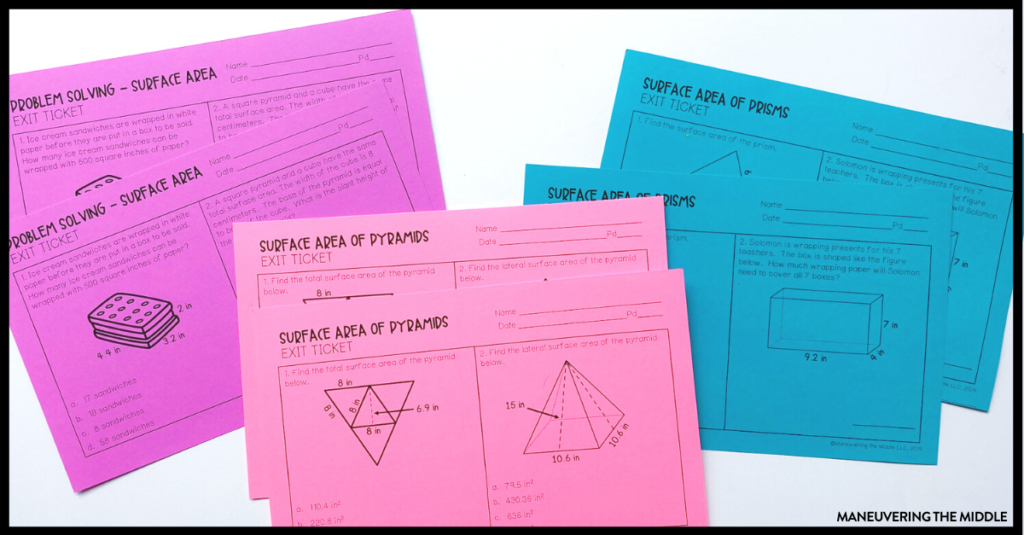
why you should use exit tickets
What is an Exit Ticket?
An exit ticket is a 2-5 question formative assessment that allows students to demonstrate the skill they learned that day. It is usually given at the end of the class period as a ticket out of the door. (Many teachers have students complete an entrance ticket as they have had more time to synthesize what they had learned.) It allows teachers to evaluate their students’ understanding of the day’s lesson and make decisions based on that evaluation.
For Reteaching
Exit tickets serve as a check-in for how students grasped the content I taught that day. After teaching a lesson, I look through the exit tickets and decide if I need to reteach the skill in a different way the following day or the day after. I usually decide based on a couple of questions:
- Did the students master the concept but maybe not the computation? If the answer is yes, I do not reteach. Example: Were they able to set up a percent proportion correctly, but made an error dividing? Then no reteaching is necessary. (Even if everyone made a division mistake – it means we need to practice division not relearn percent proportions.)
- Did the majority of students get the easiest problems correct? Usually, my exit tickets would go from easiest question to hardest question. I would not look at the hardest problems to gauge understanding. Remember this is the first day a student has seen this material. It will take time and exposure before students are rocking the more rigorous problems. The more challenging problems would serve the purpose of keeping fast workers from finishing early and to see any additional misconceptions. (The percent of students mastering a concept before moving on is going to depend on your students. My goal was usually around 75%.)
- How have students done on this skill historically? The longer you have been teaching, the more you understand how long it takes students to master certain skills. Multiplying fractions – one day. Dividing decimals – forever.
For a Quick Hit
Sometimes exit tickets that do not demonstrate mastery don’t actually necessitate reteaching the entire lesson. It might mean that I have one quick key point to clarify before moving on. The best part is that I don’t have to wait until the end of the day to fix my delivery.
Exit tickets show me where students have misconceptions or where I was unclear before I teach my next class period.
It gives me an action step: I need to model one more example before students move to group or independent work time. Furthermore, if my first period students all made the same type of error that I am able to address in my other classes, I can use one of their exit tickets as an error analysis the next day to address the misconception with them.
Challenge Students to Synthesize What They Learned
Exit tickets hold students accountable to produce work by the end of the class period that they know you will collect and look at. It sends the message that what students learned that day is important; they need to pay attention for the entirety of the class, so they can synthesize what they have learned. When students are dismissing, I will be flipping through their exit tickets and stopping students at the door if I need to clarify something with them.
In addition, it allows students to communicate their needs with you. This idea comes from Erica Stewart who has students evaluate their understanding at the bottom of their exit ticket.
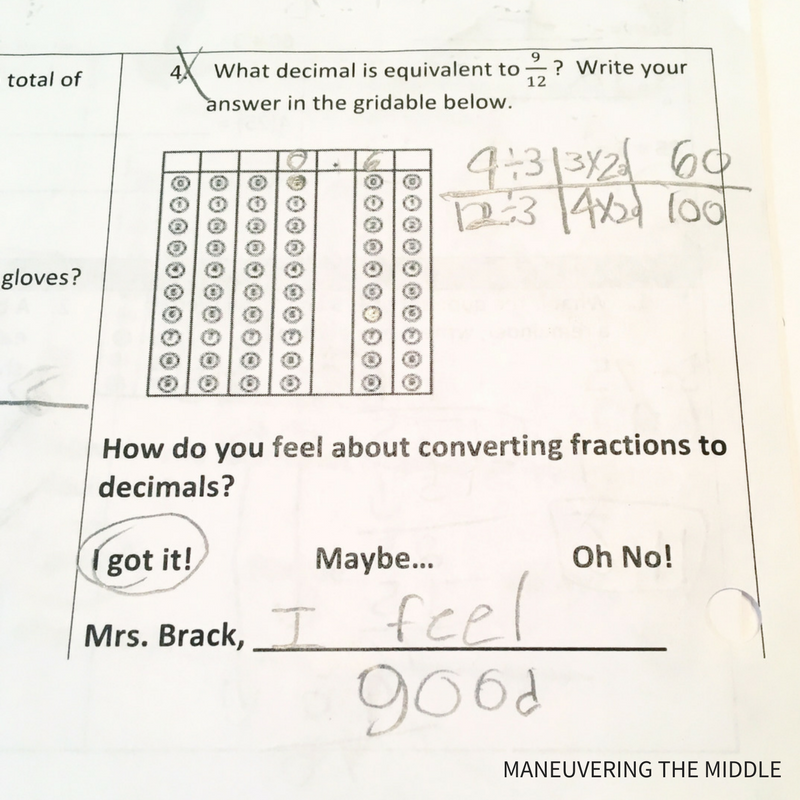
Students simply circle their understanding. Sometimes students leave me notes like, “This was so easy!” and sometimes, “I don’t understand anything.”
Should I Grade Exit Tickets?
I do not grade exit tickets if it is the first day that I have taught a skill. Occasionally, I do take a grade (if I need it) on subsequent days where students are not learning new material, but practicing material that has already been taught. Exit tickets are not a primary source of grades, but I do use the data they give me to drive instruction.
Exit tickets serve no purpose if you are not looking at them to determine where your students need additional instruction. The easiest way to get timely feedback (for students and teachers) is to use technology to gather that information. Google Forms allows for self-grading. Students can receive immediate feedback without you having to check and pass back. There are many tech tools that allow for self-grading. You can find our comprehensive list of them here.
We offer digital (via Google Forms) and printable exit tickets (pictured) in our Digital Activities. You can read more about them here or check them out to purchase here.
Do you use exit tickets in your classroom?
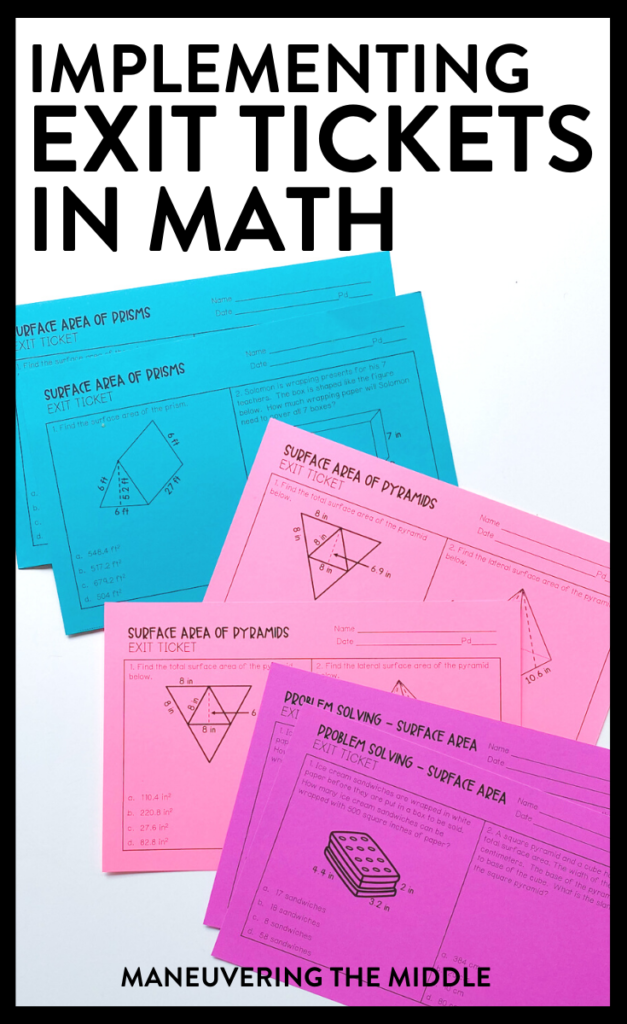
Editor’s Note: We have been publishing content for the Maneuvering the Middle blog for over 6 years! This post was originally published in September of 2017 and has been revamped for accuracy and relevancy.

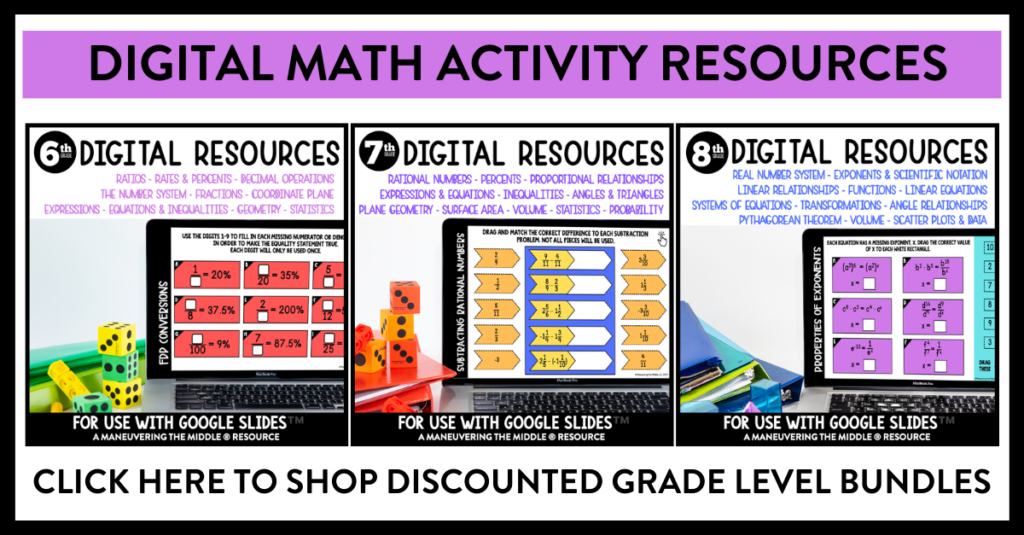
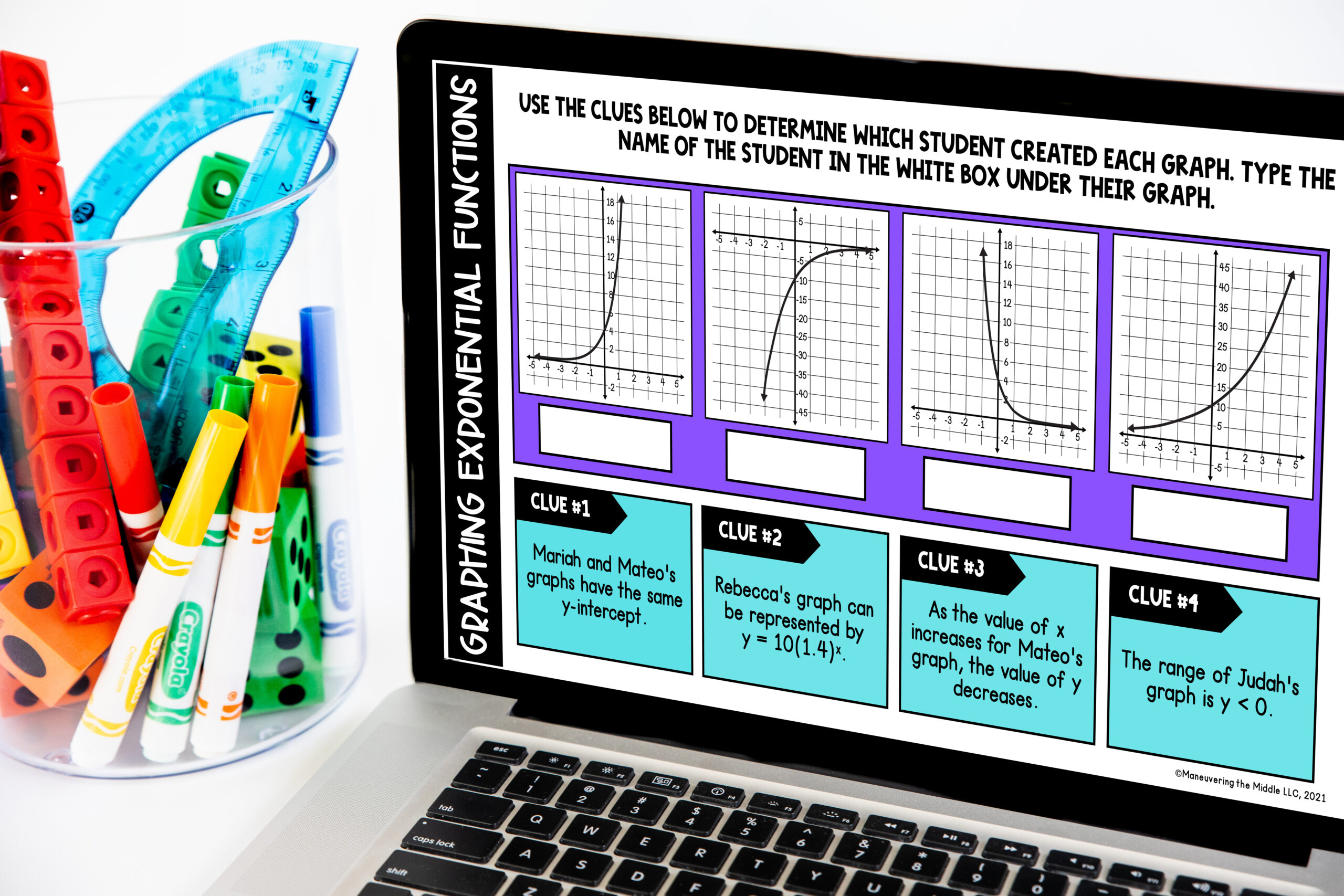

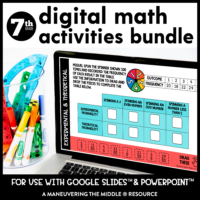
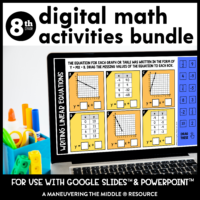
Recently subscribed to your blog. I am loving it! Still overwhelmed by all the resources, but so thankful!
Thanks so much! Remember small steps. 🙂
Love the idea. Do students grade their own exit tickets?
You could have them grade them, but if you keep the question short and simple (like 1 question) then its more effective to just collect and sort. Also, it takes a lot less time. Hope that helps!
How do you have time to look at all of the exit tickets? I would love to use this concept, but fear it would just add to my mountains of paper work.
I don’t grade them typically. In fact, most of them end up in the recycling bin before I leave for home. I look through them during a passing period or as I walk to the copier. After my first class is when I have the most critical eye. What do I need to be clearer on for my next classes? What misconception do I need to address?
Do you have a favorite exit ticket template that you use over and over?
Yes! It’s a Microsoft word document that has 4 boxes set up as a 2×2 grid. I just save over the existing document whenever I need to make a new one.